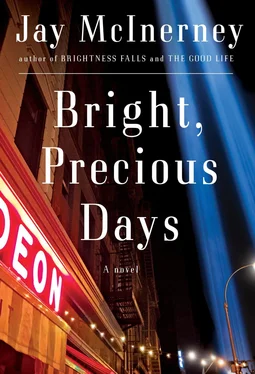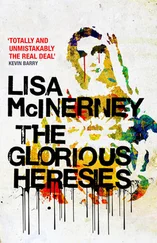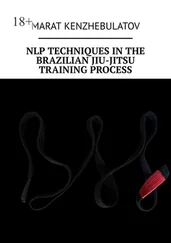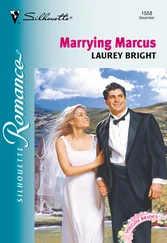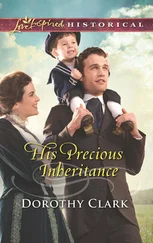She would stay for another hour, and Luke would try to convince her that, painful as it might be for Corrine and her family, Russell’s discovery was as the lancing of a boil, a slicing of the Gordian knot, a fortuitous resolution of a lingering quandary. Now, he suggested, the primary obstacle between them had been cleared away, and while, yes, it wouldn’t be an effortless transition, he was here to make it as painless as possible. He spoke words of solace and comfort, holding her and expanding on their future, and through her agony she heard him distantly, his voice fading in and out of her consciousness, as if he were speaking to her across a body of water buffeted by intermittent gusts of wind.
RUSSELL TOOK A SORT OF perverse satisfaction from the economic crisis, feeling that his own personal misfortunes mirrored those of the nation, glancing at the banner headline of The Wall Street Journal: CRISIS ON WALL STREET AS LEHMAN TOTTERS, MERRILL IS SOLD, AIG SEEKS TO RAISE CASH. And flipping through the Post, a headline closer to home: DRIVE FAST, DIE YOUNG: BAD BOY ARTIST & AUTHOR IN FIERY CRASH. The night before, after Corrine had left with her suitcase, weeping, and the kids, whom Washington had brought back home, had gone to sleep, Russell sprawled on the couch, watching the controlled hysteria of the commentators on CNBC. He raised a tumbler of Maker’s Mark to the screen and toasted: “Let it all come down, baby.”
In the morning, he woke up on the couch with a dry mouth and a piercing, almost unbearable awareness of Corrine’s betrayal. He lay there, paralyzed with self-pity, until Jeremy came out to roust him and interrogate him about his mother’s absence.
“Will she come home tonight?”
“We’ll see. Now get dressed, or we’ll be late for school.” Russell wasn’t emotionally prepared to discuss the situation this morning.
After taking the kids uptown to school in a taxi, he took the subway back down to the office. He didn’t expect to accomplish much, but neither could he bear the thought of being alone in the loft all day. His staff, sensing his misery, attributed it to Jack’s death, and after expressing their sympathy, they gave him a wide berth. He tried to imagine what he was supposed to do. He wanted to call Corrine and berate her, demand that she explain herself. He also wanted to punish her with silence, to make her suffer the agonies of wondering what he was thinking. In the meantime, the company’s accountant called to tell him he needed cash by the end of the month, that their line of credit was tapped out. His best and perhaps only hope was Tom Reynes, with whom he had a meeting that afternoon.
As he hung up, Jonathan Tashjian appeared in the doorway. “Is this a bad time?” he asked, prompting Russell to laugh mirthlessly.
“Yes, it is,” he said, “but come in anyway.”
“I’m sorry about Jack.”
“Not like we couldn’t see it coming.”
“You’ve got a lot of requests for comments and interviews.”
“I’m really not in the mood today. Tell them to call Knopf. They’re the official publisher now.”
“We’re the publisher of his first and so far only book and you’re the guy who discovered him. Not to mention the fact we got more than three thousand orders this morning.”
The effect of Jack’s death on sales hadn’t occurred to Russell until this moment. The inevitable spike might, if nothing else, buy the company some time. And talking to the press could raise McCane, Slade’s profile and bolster the illusion that it was solvent, and relevant.
“Let’s go through the requests,” he said as Gita buzzed and announced that Phillip Kohout was on the line.
Jonathan’s expression reflected his own feelings: distaste and disbelief. He hadn’t spoken to Kohout once since the day the Times broke the story, though there had been many conversations with his agent, and his lawyers.
“Tell him to fuck off,” Russell said.
—
He kept thinking Corrine would call at some point, but at the end of the day he was still waiting. Not that, if he were in her position, he’d know what to say. But it was her role to try, to beg for understanding and forgiveness.
A beautiful woman on the sidewalk, her shapeliness nicely defined by tight-fitting black yoga togs and a tank top in honor of Indian summer, turned out to be Hilary, lying in wait for him as he left the office. Russell paused in mid-step, mouth agape, unable to mask his surprise.
“You haven’t returned my calls.”
“I’ve got a lot going on, Hilary, in case you haven’t heard.”
“Yes, I’m sure you do.”
“And I’m about to be late for an appointment.”
“We need to talk.”
“I think I said everything I wanted to say the last time we talked. I thought we agreed that it was a one-off. I gave you a month’s rent. I thought you were going to get a job.”
“I’ve been trying. That’s one of the things I wanted to talk to you about. I’m applying for a job in PR at HBO and I need a recommendation. I know you know people there.”
“I suppose I could do that.”
“But I really need a loan in the meantime.”
“Is that what you call it — a loan?”
“I’m desperate,” she said, catching his wrist. “I’m going to be evicted.”
“I’m desperate, too,” he said. “You have no idea, Hilary. I’m at the end of my fucking rope. My friend Jack Carson just died and my wife’s been fucking another guy for I don’t know how long. I kicked her out of the loft, and the kids are a mess. My business is about to go under. And in case you’ve had your head up your ass and haven’t heard, the whole global economy’s headed into a meltdown.”
The pedestrians were giving them a wide berth, glancing briefly at the shouting, gesticulating man in the blue blazer before veering away.
“Oh my God. Corrine’s having an affair?”
“You didn’t know?”
“I had no idea.”
“So I don’t really care if you tell her about my little peccadillo or not.”
“Please. I’m just asking for a little help to see me through.”
Russell reached for his wallet and removed two one-hundred-dollar bills, leaving only a twenty and some ones. “Here, that’s it. That’s most of my remaining net worth. Now piss off. I’ve had enough of the Makepeace girls to last a lifetime.”
She seemed genuinely hurt, and as she turned away, he felt a twinge of guilt. Even now, as he watched her walk away, he was astonished, and mortified, that he still found her alluring. He’d always been attracted to her, but the fact that he could feel anything resembling lust in the wake of his crushing humiliation was practically miraculous, if not perverse.
—
Russell took the subway to 51st Street, just a short walk from the venerable Brook Club, on 54th between Park and Lex. He’d been there only a few times — very blue-blood, old New York. George Plimpton had taken him there for lunch a few years ago, when they’d been working on an anthology of travel writing together that was unlikely to break even, much less cover the $35,000 advance. But it was an affordable gamble that he felt brought honor to his imprint as well as an opportunity to collaborate with one of the last American men of letters. When Plimpton failed to wake up one morning not long afterward, Russell was almost envious of the grace with which he’d departed, out with friends to a couple of cocktail parties, followed by dinner at Elaine’s, slipping away in his sleep like a guest ducking out of the party without bothering anyone. A gentleman to the end, not wanting to make a fuss, or put anyone out, though several thousand souls took time out of their workday to attend his memorial at Saint John the Divine. And how many would come for me? Russell wondered. What Raymond Carver said in that poem of his —to be beloved. “And what did you want? To call myself beloved, to feel myself beloved on the earth.”
Читать дальше
